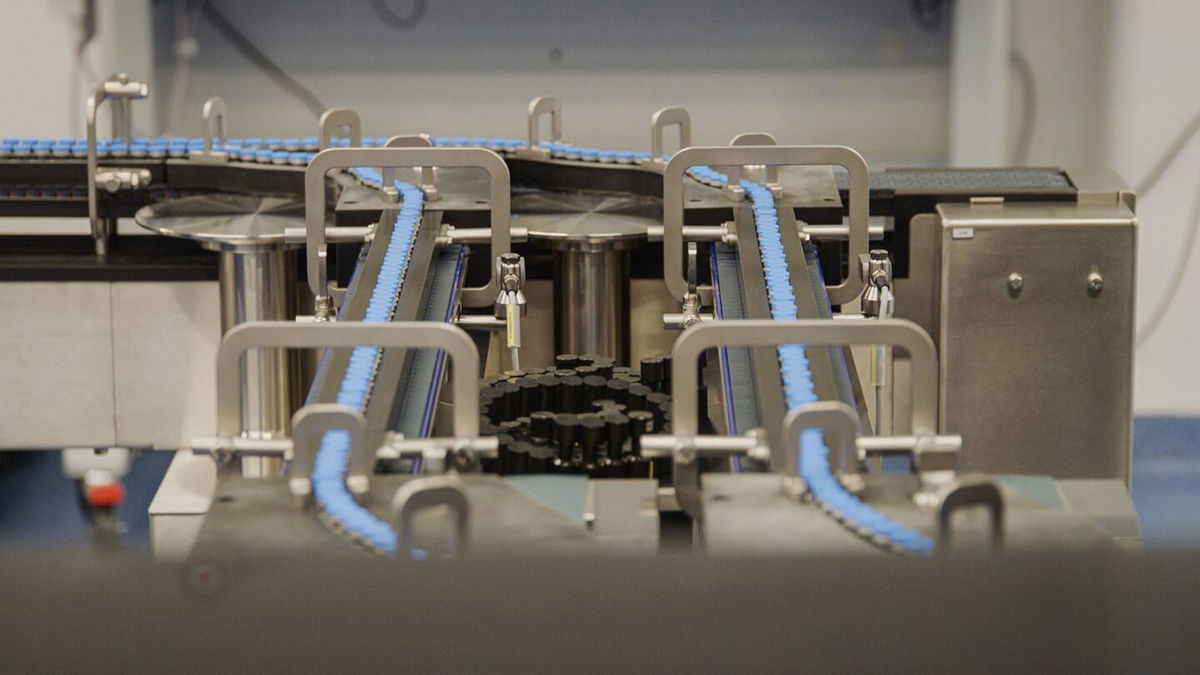FDA approves first vaccine to protect newborns from RSV

The FDA approved Pfizer's maternal vaccine to protect newborns from RSV.
By Jamie Gumbrecht, CNN
(CNN) — The US Food and Drug Administration on Monday approved the first vaccine that protects newborns from respiratory syncytial virus, known as RSV. The vaccine, made by Pfizer, is given to mothers late in their pregnancies and provides protection to infants through their first six months of life.
In a trial of more than 7,000 pregnant people and their infants, the vaccine, named Abrysvo, cut the risk that infants needed to see a doctor or be admitted to the hospital.
RSV is a common illness and major cause of hospitalization in infants and the elderly each year. It typically hits hardest during the winter months, and the last RSV season was longer and more severe than usual, overwhelming children’s hospitals.
“RSV is a common cause of illness in children, and infants are among those at highest risk for severe disease, which can lead to hospitalization,” Dr. Peter Marks, director of the FDA’s Center for Biologics Evaluation and Research, said in a statement. “This approval provides an option for healthcare providers and pregnant individuals to protect infants from this potentially life-threatening disease.”
After decades of study and failed attempts at developing RSV vaccines, there are now several offerings to protect against the virus, including a recently approved antibody shot that can be given to all infants after birth and new vaccines for people 60 and older.
“ABRYSVO’s approval as the first and only maternal immunization to help protect newborns immediately at birth through six months from RSV marks a significant milestone for the scientific community and for public health,” Annaliesa Anderson, Pfizer’s senior vice president and chief scientific officer for vaccine research and development, said in a statement.
Pfizer has said that maternal vaccination could prevent up to 16,000 hospitalizations and more than 300,000 visits to the doctor due to RSV each year, if the vaccine were universally applied.
Still, the vaccine, given from 32 to 36 weeks of gestational age, does not provide long-term protection. For the first three months after birth, the vaccine was 82% effective at preventing severe RSV disease and 57% effective at keeping babies from needing to see the doctor because of an RSV infection. By six months after birth, the vaccine was 69% effective at preventing severe RSV disease and 51% effective at preventing a doctor’s visit for RSV-related breathing problems. After about six months, it was about as effective as a placebo at keeping babies from the doctor’s office.
Earlier this year, the FDA’s vaccine advisers voted unanimously that the vaccine was effective and 10-4 that data supported its safety. An agency analysis found that there was a slightly higher proportion of preterm birth in babies whose mothers received the RSV vaccine compared with those who got a placebo: 5.7% vs. 4.7%, respectively. The difference was not considered statistically significant, so it could be due to chance.
Pfizer said it plans a large postmarket safety study that will use large databases of commercial claims data, including Medicaid data, to help evaluate safety endpoints – including preterm birth – in everyone who gets the vaccine.
The company is also studying the vaccine in higher-risk children ages 2 to 18 and adults age 18 to 60 who are at higher risk for RSV due to underlying medical conditions or who have weakened immune systems.
CNN’s Jen Christensen and Amanda Sealy contributed to this report.
The-CNN-Wire
™ & © 2023 Cable News Network, Inc., a Warner Bros. Discovery Company. All rights reserved.